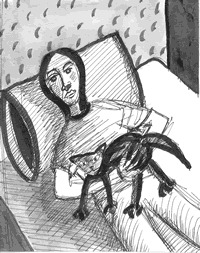|
LA
POBREZA ATRAPADA
Entre la crisis y el olvido
Blandine Destremau y Pierre Salama
 En
la mayoría de las economías latinoamericanas se
agravó sensiblemente la pobreza en los ochenta y si ésta
disminuye en la primera mitad de los noventa, las desigualdades
se acentúan en la generalidad de los países. Las
crisis financieras de la segunda mitad de los noventa son reveladoras
de la dinámica “de economía casino” que
tiende a instaurarse con la súbita liberalización
del conjunto de los mercados y el retraimiento, a veces masivo,
del Estado. Las turbulencias macroeconómicas tienen efectos
desmultiplicadores sobre la pobreza. La crisis acentúa
la pobreza y el repunte económico no genera resultados
compensatorios. La elevada volatilidad macroeconómica provoca
efectos de histéresis que frenan la disminución
de la pobreza que podría producir el crecimiento si fuera
más estable. En
la mayoría de las economías latinoamericanas se
agravó sensiblemente la pobreza en los ochenta y si ésta
disminuye en la primera mitad de los noventa, las desigualdades
se acentúan en la generalidad de los países. Las
crisis financieras de la segunda mitad de los noventa son reveladoras
de la dinámica “de economía casino” que
tiende a instaurarse con la súbita liberalización
del conjunto de los mercados y el retraimiento, a veces masivo,
del Estado. Las turbulencias macroeconómicas tienen efectos
desmultiplicadores sobre la pobreza. La crisis acentúa
la pobreza y el repunte económico no genera resultados
compensatorios. La elevada volatilidad macroeconómica provoca
efectos de histéresis que frenan la disminución
de la pobreza que podría producir el crecimiento si fuera
más estable.
THE
TRAPED POVERTY
Between the crisis and the oblivion
Blandine Destremau y Pierre Salama
A
large majority of economies in Latin America suffered a significant
growth of poverty in the 80’s, and although this situation
improved in the first half of the 90’s, the gap between rich
and poor grew in most countries. Financial crises in the second
half of the 90’s evidence “casino economy” dynamics,
which tend to emerge upon the sudden liberation of markets as
a whole and a –sometimes massive– retraction of the
State. Macroeconomic turbulences have “dismultiplying”
effects on poverty. Crisis emphasizes poverty, and economic recovery
fails to bring about compensatory consequences. High macroeconomic
volatility causes hysteresis effects that in turn arrest the reduction
of poverty that might be gained by a more stable growth.
|